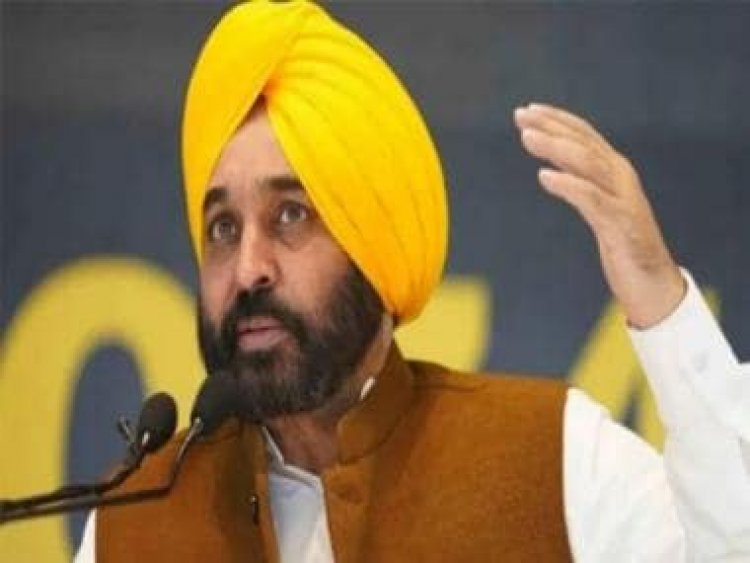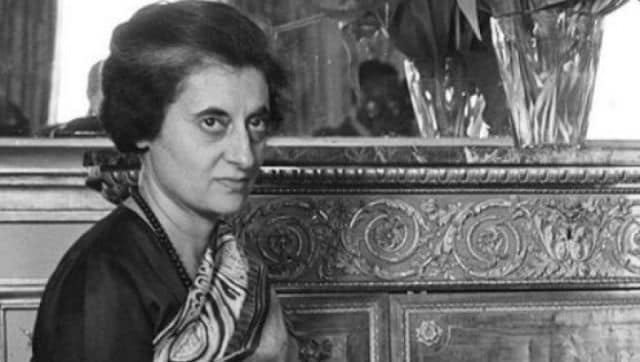Right Word | How Congress instigated separatism in Punjab and why we need to watch AAP
Right Word | How Congress instigated separatism in Punjab and why we need to watch AAP

Nations should learn from their past so that mistakes are not repeated. On 31 October 1984 Prime Minister Indira Gandhi was assassinated by her two bodyguards. What followed this was an anti-Sikh pogrom and around a decade of bloody terrorism in Punjab. If we don’t want to repeat the mistakes, it is time to take a look at the developments preceding 1984 and realise what was it that led to the assassination of a prime minister, anti-Sikh riots, and killings of Hindus and Sikhs by terrorists.
Congress and the Khalistan conspiracy
Broadly, it was a two-phased operation initiated by Congress in the late 1970s in their lust for power that threw Punjab into the fire. Pakistan latched on to what was initiated by the Congress and stoked the fires further. It all started when the Akali Dal-Janata Party coalition came to power in 1977 in the state of Punjab defeating the Congress.
GBS Sidhu, who worked for 26 years in Research and Analysis Wing(R&AW) and handled several sensitive assignments related to Punjab terrorism, explains subsequent developments in The Khalistan Conspiracy, “The genesis …can be traced to 1978, when former chief minister of Punjab Giani Zail Singh advised Indira Gandhi’s younger son Sanjay Gandhi that the Akali Dal-Janata Party government coalition government in Punjab could be destabilised if the moderate policies followed by the senior Akali Dal leadership, comprising Harchand Singh Longowal, Shiromani Gurudwara Prabandhak Committee (SGPC) chairman GS Tohra and chief minister Prakash Singh Badal, could come under attack by a suitable Sikh Sant.
With Indira Gandhi’s approval sought and Sanjay’s ally Kamal Nath on board, Sant Jarnail Singh Bhindrawale of Gurudwara Darshan Prakash at Chowk Mehta was chosen as the Sant who would do their bidding in Punjab.” Bhindrawale loyalists have contested this theory, but several accounts by independent observers and commentators point towards Congress leaders adopting Machiavellian tactics that unfortunately resulted in preparing a fertile ground for terrorism in Punjab.

Mark Tully and Satish Jacob described the role of Congress leaders Amritsar: Mrs Gandhi’s last battle, “Sanjay Gandhi and Zail Singh also needed a party to promote Bhindrawale and harass the Akalis. So a new party was formed on 13 April 1978, just a week before the attack on the Nirankari convention. The party was called Dal Khalsa. The inaugural meeting was held in the Aroma Hotel, and according to the staff of the hotel, the bill of Rs 600 was paid by Zail Singh.”
The first meeting of Dal Khalsa discussed the demand for Khalistan, a separate state for Sikhs of India. “The Government White Paper on the army action in the Golden Temple admitted that “The Dal Khalsa was originally established with the avowed object of demanding an independent sovereign Sikh State’. However, Zail Singh, the man who had been Chief Minister of Punjab and was to go on to become home minister in the Central cabinet and then President of India, continued to promote its cause. Journalists in Chandigarh remember how he used to ring them up and ask them to publish news of Dal Khalsa on the front pages of their newspapers.”
Bhindranwale-Congress connect
According to Tully and Jacob, in 1980 Zail Singh thought it worth his while to bring in Bhindrawale on the Congress side. Bhindrawale campaigned for the Congress in three constituencies (in Punjab). His name was already so influential that two of the (Congress) candidates printed posters saying ‘Bhindrawale supports me’. One of the candidates Bhindrawale supported was RL Bhatia, who was the president of the Punjab Congress party. Another was the wife of Pritam Singh Bhinder, a senior police officer who played a controversial role in the Emergency.
In fact, prime minister Indira Gandhi admitted while being interviewed by BBC for its current affairs programme ‘Panorama’, “Mr Bhindrawale did go and speak for one of our candidates.” (Amritsar: Mrs Gandhi’s last battle, pp65)
Role of ‘1 Akbar Road Group’
When Sanjay Gandhi and Giani Zail Singh began their ‘Operation Punjab’ aided by Kamal Nath, the hub of their activities was the official residence of Indira Gandhi at 1, Akbar Road. In 1980, Indira Gandhi came back to power and the ‘1 Akbar Road’ group expanded. This group was driving the promotion of hardliners in Punjab with Bhindrawale spearheading them. According to Sidhu, “After January 1980, Makhan Lal Fotedar, political assistant to Prime Minister Indira Gandhi, Arun Nehru, Sanjay’s cousin and MP from Rae Bareli and later Arun Singh from Kapurthala family were added to the group. After Sanjay’s death in June 1980, his elder brother Rajiv Gandhi took his place. Sanjay was the main driving force (earlier but)… after his death, Rajiv depended heavily on Arun Nehru, ML Fotedar and Arun Singh, even much after his mother’s assassination on 31 October 1984.”
After 1980 when Indira Gandhi came back to power, decisions pertaining to Punjab were largely taken by this ‘1 Akbar Road’ group in their informal meeting. Sidhu has mentioned two such meetings in his book.
Congress gameplan
The key reason for the Congress to promote separatist leaders and their activities in Punjab was to create a Hindu-Sikh divide so that Congress could win the 1985 Lok Sabha elections by polarising Hindus.
Sidhu has explained this in detail, “The idea behind (all this) can be summed up as follows: Create a climate of communal mistrust between Hindus and Sikhs in Punjab and the neighbouring state of Haryana, first be encouraging and then by overlooking acts of violence and extremism attributed to Bhindrawale. This would be accompanied by coverage of related incidents by an obliging media, especially the vernacular press. Also, an impression would be created amongst Hindus that pro-Khalistan feelings were catching the imagination of all Sikhs, both in Punjab and abroad, which had the potential of endangering the integrity of the nation.”
“In such a vitiated atmosphere, Hindus were expected to feel hurt, victimised and threatened by the acts of Sikh community, whose interest could easily be ignored as they comprised less than 2 percent of the country’s population. Prolonged and unhindered but carefully controlled discontent among the members of the majority community was expected to generate emotional hysteria… On the other hand it was important to keep the pot boiling in Punjab to allow Bhindrawale to operate unhindered till the situation was ripe for final action.”
In this situation, what Congress also did was to give a false impression to Akali leaders that its government and party was sympathetic to their demands. “But in actual fact, the talks (between Congress government at Centre and Akalis) would be prolonged on one pretext or the other, because if demands were accepted, normalcy would return prematurely to Punjab. That would leave no scope for Bhindrawale to operate.”
In a nutshell, prime minister Indira Gandhi kept on playing this game, till the other players which she was treating as pawns turned against her. Not only did she lose her life but also the results were disastrous for the whole nation. The menace of terrorism wrecked Punjab as a society.
Conclusion
A popular saying is, ‘History repeats itself’. Hopefully, it shouldn’t do the same in Punjab as far as the era from 1978 to the 1990s is concerned. We paid a huge price as a society and nation for the lust for power of the Congress and its leaders. The wheel has turned full circle, both Akalis and Congress are out of power there, the Bharatiya Janata Party is yet to emerge as a major player in the state. Punjab is under the rule of the Aam Aadmi Party(AAP) and so far, its rule has left much to be desired. The feedback from the ground is worrisome. It’s time to learn lessons from the past and watch Punjab closely so that history doesn’t repeat itself.
The writer, an author and columnist, has written several books. He tweets @ArunAnandLive. Views expressed are personal.
Read all the Latest News, Trending News, Cricket News, Bollywood News,
India News and Entertainment News here. Follow us on Facebook, Twitter and Instagram.
What's Your Reaction?


























































